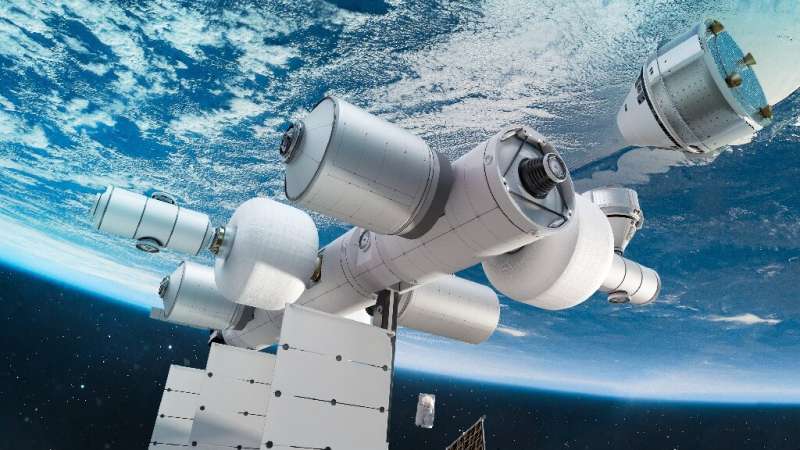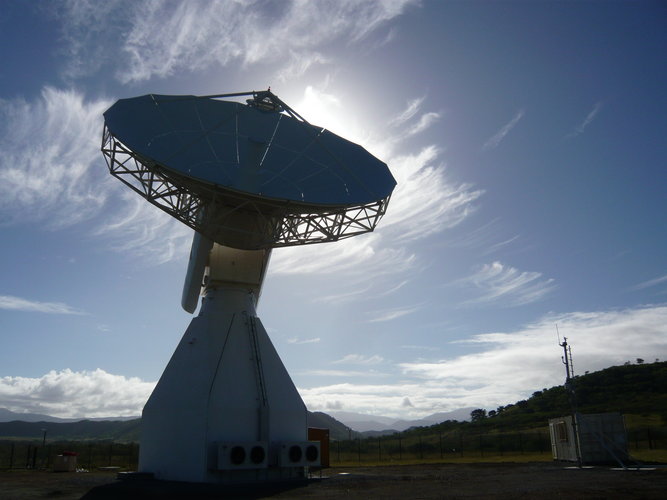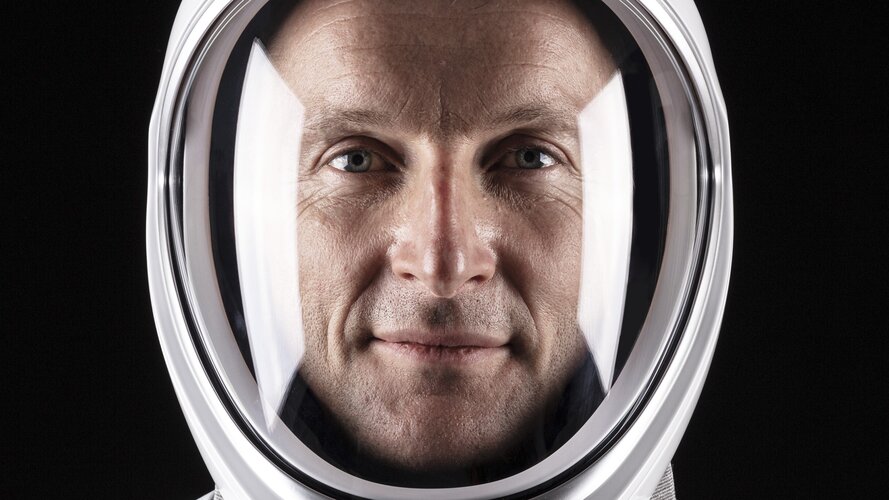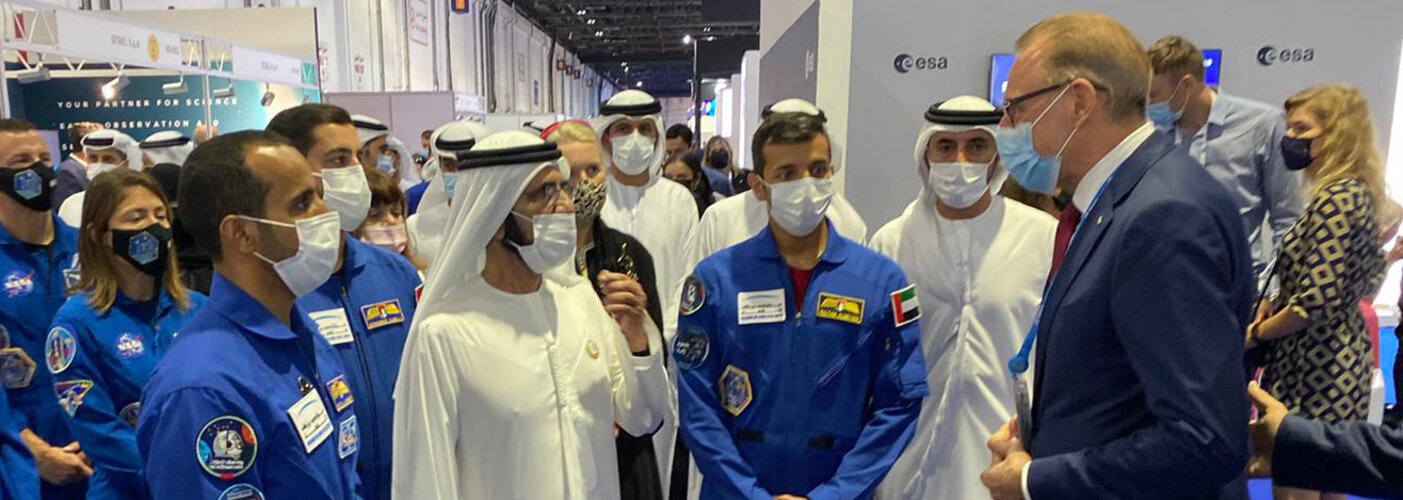
Copernical Team
Bezos' Blue Origin announces plans for private space station

Jeff Bezos' Blue Origin on Monday announced it wants to launch a space station that will house up to 10 people in the second half of the decade, as the race to commercialize the cosmos heats up.
"Orbital Reef," described in a press statement as a mixed-use business park in space that will support microgravity research and manufacturing, is a joint venture with commercial space company Sierra Space and has the support of Boeing and Arizona State University.
"For over sixty years, NASA and other space agencies have developed orbital space flight and space habitation, setting us up for commercial business to take off in this decade," said Blue Origin executive Brent Sherwood.
"We will expand access, lower the cost, and provide all the services and amenities needed to normalize space flight.
Galileo Control Segment upgrade ready for next launch

A significant first for next month’s 11th Galileo launch: thanks to an upgrade of the world-spanning Galileo Control Segment, this will be the first launch where the satellites ‘ first steps into space will be overseen from an existing Galileo Control Centre, rather than requiring an external mission control site.
Folding clothes in space
 Video:
00:02:21
Video:
00:02:21
ESA astronaut Thomas Pesquet is sharing scenes from life on board the International Space Station during his second mission “Alpha”. Some things are easier without gravity getting in the way, some things are more difficult in weightlessness. Folding clothes is one of the more difficult things to do! Luckily astronauts in space do not have to do any washing or ironing, they use their t-shirts until dirty (generally after two weeks) and then wear new ones. Thomas shared this video on social media with the caption:
“Folding clothes in space is... hard! Luckily we don't need to most
Aurora under technology
 Video:
00:01:27
Video:
00:01:27
Timelapse video made during ESA astronaut Thomas Pesquet’s second mission to the International Space Station, “Alpha”. The camera is setup to take pictures at intervals of two a second, and the pictures are then edited into this video that plays at 25 pictures a second. The video is around 12 times faster than real speed.
Thomas shared this video on social media with the caption:
“Sometimes aurora seem to creep over the horizon and envelop our globe. Under the technological powerhouse of Canadarm, the Station's solar panels and one of our radio antennas, this timelapse passes the aurora so
Cloudy timelapse over Baja California
 Video:
00:02:26
Video:
00:02:26
Timelapse video made during ESA astronaut Thomas Pesquet’s second mission to the International Space Station, “Alpha”. The camera is setup to take pictures at intervals of two a second, and the pictures are then edited into this video that plays at 25 pictures a second. The video is around 12 times faster than real speed.
Thomas shared this video on social media with the caption:
“Soar over Earth for timelapse Tuesday: clouds, clouds, Baja California, and more clouds. There are often many clouds covering our planet!”
Over 200 experiments are planned during Thomas’ time in space, with 40 European ones
Launching soon: Cosmic Kiss
 Video:
00:04:00
Video:
00:04:00
German ESA astronaut Matthias Maurer will soon begin his first mission to the International Space Station. As a member of Crew-3, he will be launched from NASA’s Kennedy Space Center in a SpaceX Crew Dragon spacecraft alongside NASA astronauts Raja Chari, Tom Marshburn and Kayla Barron.
Matthias selected the mission name “Cosmic Kiss” for his time in orbit as a declaration of love for space. He will spend around six months living and working in microgravity, where he will carry out many European and international experiments to advance space exploration and benefit lives on Earth.
ESA at IAC 2021

The 72nd International Astronautical Congress opens its doors on Monday 25 October at the Dubai World Trade Centre in the United Arab Emirates, for a week of intense interactions for the world space community. After one year online due to COVID-19 restrictions, the congress returns to an in-person event with the theme 'Inspire, innovate and discover for the benefit of humankind'.
Could this be a planet in another galaxy?

Using ESA’s XMM-Newton and NASA’s Chandra X-ray space telescopes, astronomers have made an important step in the quest to find a planet outside of the Milky Way.
SwRI-led team produces a new Earth Bombardment Model
 A team led by Southwest Research Institute has updated its asteroid bombardment model of the Earth with the latest geologic evidence of ancient, large collisions. These models have been used to understand how impacts may have affected oxygen levels in the Earth's atmosphere in the Archean eon, 2.5 to 4 billion years ago.
When large asteroids or comets struck early Earth, the energy release
A team led by Southwest Research Institute has updated its asteroid bombardment model of the Earth with the latest geologic evidence of ancient, large collisions. These models have been used to understand how impacts may have affected oxygen levels in the Earth's atmosphere in the Archean eon, 2.5 to 4 billion years ago.
When large asteroids or comets struck early Earth, the energy release Ten years of Soyuz at Europe's Spaceport
 On 21 October 2011, the first pair of Galileo navigation satellites was launched by a Russian-built Soyuz rocket from Europe's Spaceport in French Guiana.
The introduction of Russia's Soyuz 2 rocket to Europe's Spaceport was a milestone of strategic cooperation in the space transportation sector between Europe and the Russian Federation, and an exciting new opportunity for ESA.
ESA's
On 21 October 2011, the first pair of Galileo navigation satellites was launched by a Russian-built Soyuz rocket from Europe's Spaceport in French Guiana.
The introduction of Russia's Soyuz 2 rocket to Europe's Spaceport was a milestone of strategic cooperation in the space transportation sector between Europe and the Russian Federation, and an exciting new opportunity for ESA.
ESA's 